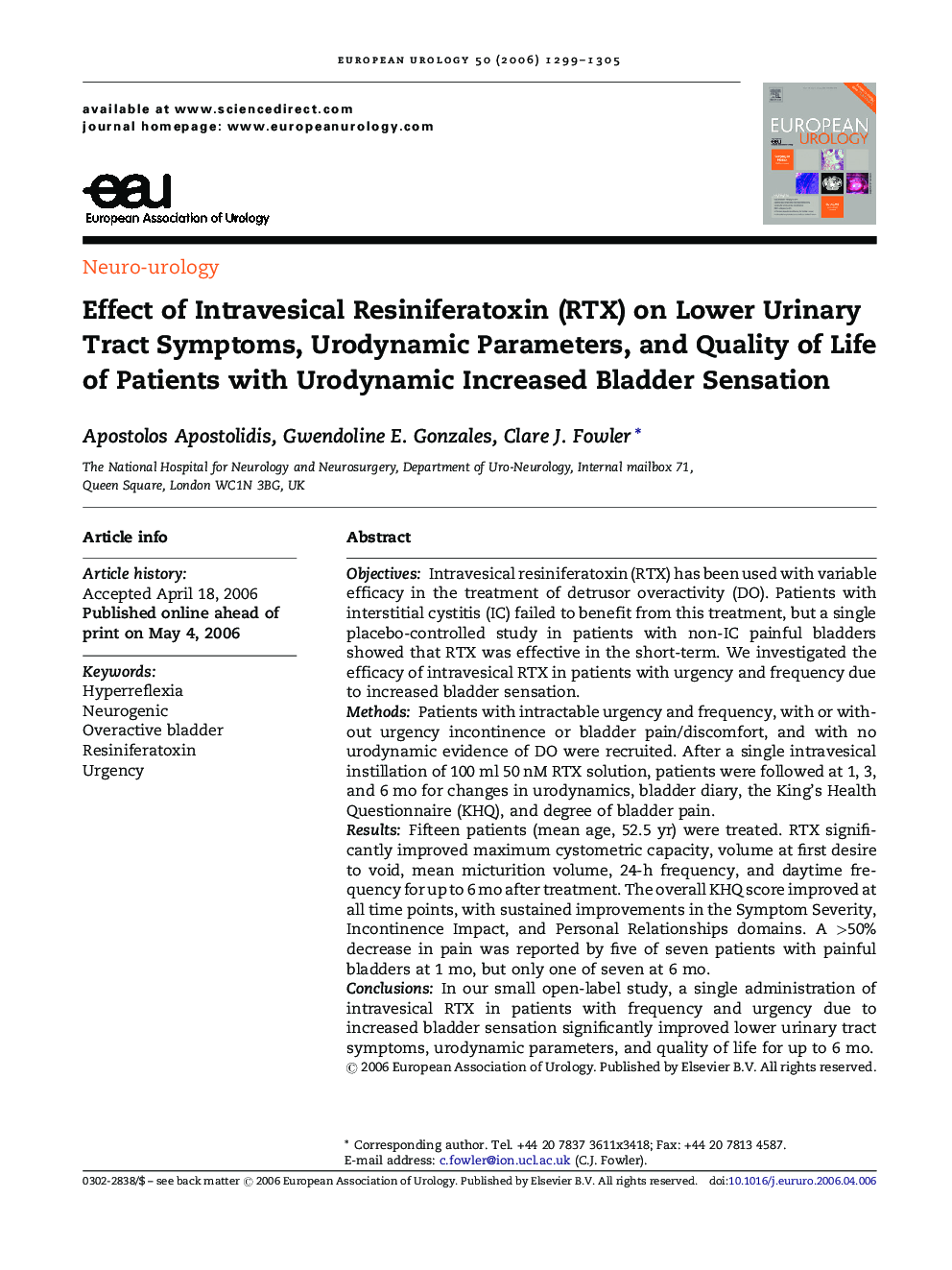| Article ID | Journal | Published Year | Pages | File Type |
|---|---|---|---|---|
| 3926743 | European Urology | 2006 | 7 Pages |
ObjectivesIntravesical resiniferatoxin (RTX) has been used with variable efficacy in the treatment of detrusor overactivity (DO). Patients with interstitial cystitis (IC) failed to benefit from this treatment, but a single placebo-controlled study in patients with non-IC painful bladders showed that RTX was effective in the short-term. We investigated the efficacy of intravesical RTX in patients with urgency and frequency due to increased bladder sensation.MethodsPatients with intractable urgency and frequency, with or without urgency incontinence or bladder pain/discomfort, and with no urodynamic evidence of DO were recruited. After a single intravesical instillation of 100 ml 50 nM RTX solution, patients were followed at 1, 3, and 6 mo for changes in urodynamics, bladder diary, the King's Health Questionnaire (KHQ), and degree of bladder pain.ResultsFifteen patients (mean age, 52.5 yr) were treated. RTX significantly improved maximum cystometric capacity, volume at first desire to void, mean micturition volume, 24-h frequency, and daytime frequency for up to 6 mo after treatment. The overall KHQ score improved at all time points, with sustained improvements in the Symptom Severity, Incontinence Impact, and Personal Relationships domains. A >50% decrease in pain was reported by five of seven patients with painful bladders at 1 mo, but only one of seven at 6 mo.ConclusionsIn our small open-label study, a single administration of intravesical RTX in patients with frequency and urgency due to increased bladder sensation significantly improved lower urinary tract symptoms, urodynamic parameters, and quality of life for up to 6 mo.
